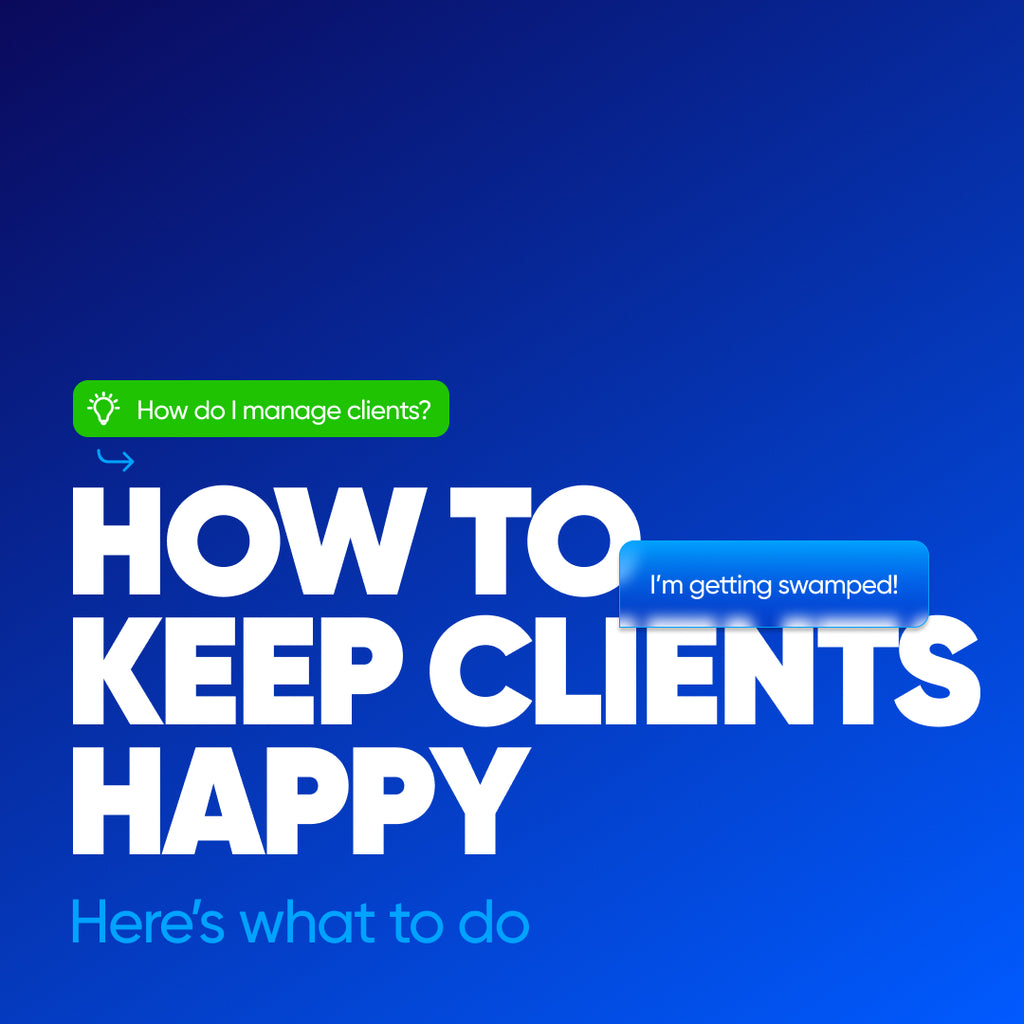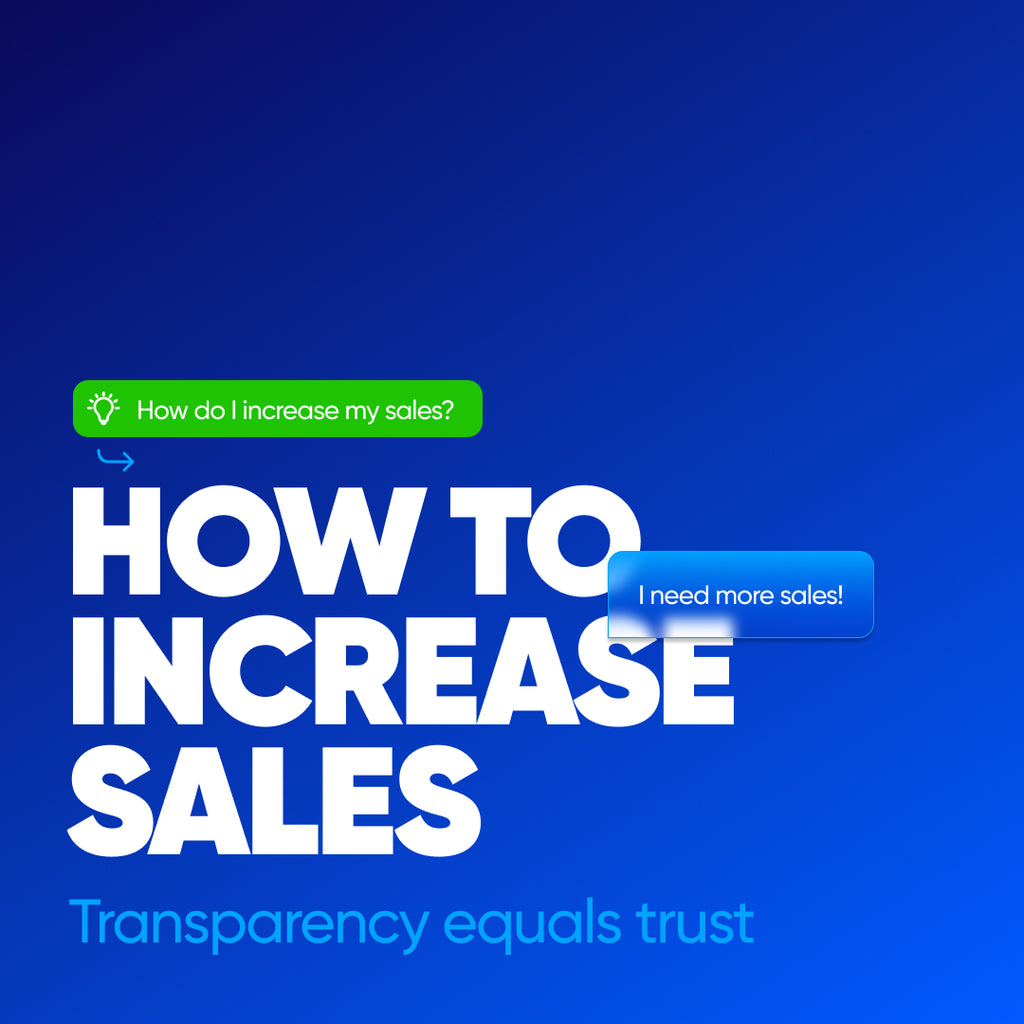Goal: Build a profitable freelance career finding new clients daily and never go hungry again.
Here is a 1 Hour Coaching Session session I recently did with Paul O., from Nigeria, Africa who is currently earning $150,000/year on Upwork and wants to grow his freelance business:
Why build a freelance system for a profitable career?
Your daily system is the foundation for your success by building a routine to start your day on the right track and always know which way is forward. Everyone will struggle with motivation at some point, and your goal is to have a long-term, consistent system that begins every day on the right track, slowly building the foundation for your freelance career.
Stop doing this...
Freelancer method
Most freelancers focus all their energy on finding the initial project, promoting themselves, selling the project, completing it, then repeating it. This system will hold you back.
Problem:
Too much downtime.
You focus on completing the project but neglect sales and marketing until you finish each project.
Try doing this instead...
Salesperson method
Successful freelancers focus on future projects, dividing each day into paths that consistently bring in new business, selling, promoting, and never waiting. This system will set you free.
Solution:
Consistent projects.
Accept that you are a salesperson first and that marketing, sales, and production are equally important.
What?
Growth happens through repetition and consistency. One hurdle that all freelancers will struggle with is a cycle of finding the project, selling it, doing the production, having downtime, and finding the next project, over and over.
The goal of designing and implementing this system is that you will have a consistent flow of work where once a project ends, there will be overlap into the next project.
The system builds a reliable source of income for your freelance career. Significantly reducing the anxiety of needing to find the next project, and if the worst happens and your project doesn't go well, you will quickly be able to switch gears into the next project.
We have routines throughout our lives; we get up to brush our teeth, shower, make coffee and breakfast, and take the dog for a walk. There are thousands of versions of these routines which make up our lives and are all unique to each person. Fitting our likes and dislikes, and we often won't complete these routines unless we enjoy them.
Uncomfortable systems are the primary reason some people struggle with losing weight, quitting smoking, or putting down that drink. We get comfortable, and unless our systems are comfortable, they're virtually impossible to do in any long-term, meaningful way.
How?
Designing your routine should be pretty straightforward; it should be so easy to follow that you do it automatically. After some consistency of application, these systems we build must become routine and help us through the days when we lack motivation and direction.
Here are the steps to designing your profitable freelance system:
Production:
How long can you do focused production?
Production is the freelance work you do for the money. You must be honest about how long you can work before becoming distracted.
Sales:
How busy with production are you?
Sales must always have a block of time put aside in your daily routine. If you have no Production work, add more time for Sales.
Marketing:
How many Sales are you getting?
Marketing makes Sales easier, so if you're working hard on Sales but not getting very far, you need to spend more time on your Marketing.
With these considerations in place, you now list the steps in your system to start the routine. I recommend adding the following steps to your system, then making adjustments based on your unique situation.
Choose from these Steps:
- Personal - Work on your branding (profile, pitch, social media, portfolio, website, etc.)
- Personal - Work on a personal project (digital or physical product)
- Marketing - Write a blog post for your website (add the article to social media channels)
- Marketing - Design a social media post and share it
- Marketing - Engage with all comments and likes, and build your following and connections
- Sales - Build a list of opportunities on a spreadsheet, contact 10 per day, and add them to your customer list
- Sales - Send out at least ten proposals per day on a freelance platform such as Upwork or Freelancer
- Production - Choose one project and commit to focused work by removing distractions
Important: Follow this system from start to finish. In total, it should take about 3 to 4 hours. If you find you are becoming distracted, it is essential to note when this is happening and if there are consistencies in which steps in your routine are causing the distraction.
Reduce the time you are spending in the step where you become distracted.
This step may be more difficult for you, and you should reduce that step until you grow accustomed to the system. The goal here is to make the system repeatable, and burning yourself out is not the direction you want to go.
When you start your system, you may only be able to spend minutes on each step, which is perfectly fine. If you are training for the Olympics, you don't start by running a marathon. You start by walking.
Remember that your brain can burn out, just like a muscle making it essential that your system is easy and slowly increases in time as you can handle more and more.
I'm not the person who recommends working more than 8 hours per day.
Sure, if you want to be a Billionaire, that's fine, but I don't believe in or promote hustle culture. You can earn an excellent 6-figure salary being a freelancer with 6 to 8-hour workdays. With twenty years of experience, I think this is a perfect salary. Money makes things shinier, but it rarely has anything to do with overall happiness.
I am the person who recommends exercising at least 1-2 hours per day.
I recommend splitting your day in half and leaving a block of about 2 hours directly in the center of your day. I leave this time open for personal time with my family, exercise, lunch, and other things I have to do that don't relate to the Production work I'm doing. This gap also helps recharge your creativity and productivity.
Example?
Remember that your daily system must work for you, and the more comfortable you can design your routine around your personal preferences, the more likely it is that you will succeed. Below is the system I have built, so you have an example of a functional freelance success system. If you have trouble figuring out where to start, try this and adjust the total time spent on each step to suit your goals and lifestyle.
Here is what I use for my daily routine:
Marketing - Sales - Production - Distraction - Break - Repeat
Marketing
30 minutes
I start with my social media posting each day, writing, designing, and posting my content. I then choose from my profile, portfolio, pitch, presentation, or another marketing piece that could use an upgrade.
Sales
15 minutes
Since I have used this system for years, I don't have to spend much time on Sales. I spend this time answering emails, contacting ten people on LinkedIn, and submitting ten proposals each day on Upwork.
Production
3 hours
I choose one project I want to do, set my phone to do not disturb, choose a playlist and work on production. As this time is highly focused, my 3 hours often produce higher output than a full day.
Distraction
1 to 2 minutes
I can do focused production for about 3 to 4 hours. If I start becoming distracted for a few minutes, I know it's time for a break. My work quality suffers because of burnout if I don't take a break.
Break
1 to 2 hours
The more active I am, the better my work becomes. I designed an exercise regimen that includes weight lifting, cycling, running, and martial arts. By mixing these exercises, I stay consistent.
Repeat
1 to 2 hours
After my break, I repeat this system in a more scaled-down version, with each step of the system fitting within 1 to 2 hours and dependent on what I feel will most benefit my day and finish on a positive note.
Important: Build a system that you can follow daily. The key is to remain consistent.
My system starts with marketing to find clients, sales to contact them and present my work to my workday where I produce the work. Once I become distracted, it's time for a break, and once my batteries recharge from my break, I repeat a smaller scale of the system to finish the day.
It's a simple, easily adjustable process based on workload, but this should be part of your daily routine regardless of how busy you are.
If you're starting and have little to no work, extend your daily system as long as you can fit it into your schedule. Some are fortunate and can spend 8 hours a day on their routine because they don't have additional responsibilities to balance, like a non-freelance job and family.
For example, when I finished Art school in 2001, I lived with my parents, with no money, no wife or kids, so I had a lot of time, and my system looked more like this:
Finding clients: ~2 hours
Contacting clients: ~2 hours
Working on my marketing: ~4 hours
The more time you can devote to this system, the better, but you will reach a critical mass of not needing particular steps as much as others, and the system will need to be adjusted.
Use your system to maintain a steady workload and vary your workload based on your lifestyle choices:
- Sometimes, I don't want to work a lot and recharge my batteries, reducing my daily routine.
- Sometimes, I have loads of energy and increase my time on my system.
The choice is yours, should vary, and shouldn't be timed, we don't time ourselves taking a shower or brushing our teeth, some days we want to stand in hot water a little longer and that's fine, remember, it's all about making your system comfortable and consistent.
In sports training, there is a process called progressive overload, where you steadily increase the time within your training routine to the point your body can't handle it, then back off to recover.
If you want to grow your freelance business quickly, spend as much time within your system as you possibly can handle.
One thing to keep in the center of your mind as you work your system is that there are people ahead of you in this process.
Feeling behind is normal, and realizing that using a system and remaining consistent will allow you to quickly catch up and pass competitors. Your first system will be about catching up. Eventually, you'll start getting ahead, this is you passing people with your system, and in the rarified air of any industry, customers will be finding you. That's when you know your system worked perfectly. Your routine may feel frustrating until that point, but rest assured that other people will quit as you keep going.
If you're thinking of quitting, think of this:
Only about 20% of businesspeople make goals. Out of those, 70% won't achieve their goals. If you remain consistent with your system, you will pass those that quit.
Assignment: Design your daily system
Each daily system should grow and evolve, but building a baseline system will get you started. Design your baseline system around the lifestyle you choose and where you are in the process of developing your freelance career.
Marketing - List the marketing pieces you can work on each day to make your overall personal brand more appealing to potential customers.
The time I will spend:
What I will be working on:
Sales - List the number of people you plan on connecting with and contacting as well as the number of proposals and job applications you will send each day.
The time I will spend:
What I will be working on:
Production - List the projects you have by order of importance and choose which one you will devote focused production time to.
The time I will spend:
What I will be working on:
Below is the format I would like you to begin with and slowly modify to suit your style.
In this assignment, personalize it to fit how you work to give your system the best chance at success.
When I start my workday as a freelancer, I check my emails and respond to clients for up to __ minutes. Next, I will work on a personal project which will enhance my brand for __ minutes. Once completed, I will find __ new clients for __ minutes and send connection requests and messages to each new prospect on ________ platform. I will then go to __________ platform and send proposals to __ projects. After which, I will post on _______ social media platform. I will then prioritize ________ project for completion today.
Although this system may seem very simple, that's the purpose; it must be repeatable and predictable over the years and doesn't need to be highly complex to be effective.
PRO-TIP
Consistency is more important than frequency when developing your system. Consistency compounds and frequency burns you out. As you consistently make contacts each day, you will slowly be able to adapt your workload to suit your life.
Want to learn more?
Buy my book the Freelance Shortcut for 10 assignments and a step by step guide to a successful freelance career.
Would you like a one on one Freelance Coach to help you achieve your freelancing goals and leap ahead of the competition?
Not sure what kind of freelancer you want to be? Read 3 best Freelance Jobs for Beginners in 2023.

How do I build a profitable freelance career?
Then, pick one of these:
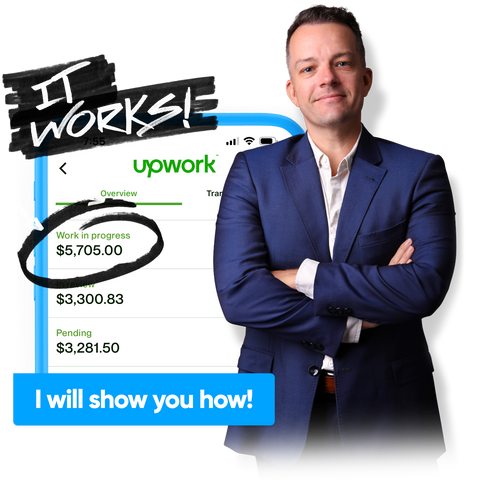
Freelance Coach
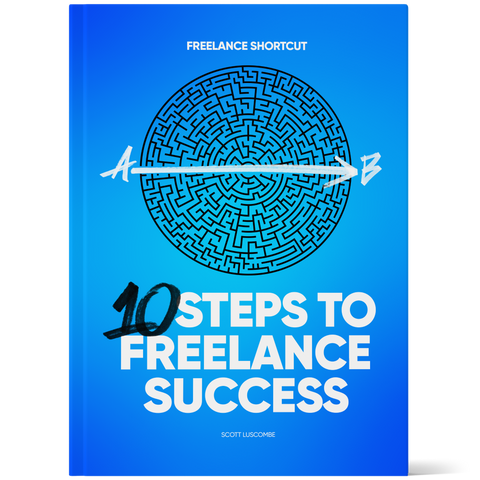
Freelance Book - 10 Step Success Shortcut
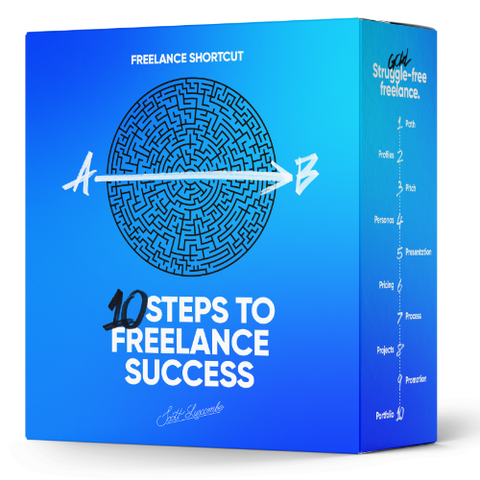
Freelance Success Digital Course
Third, try these:

Best SEO Writing Tool

Start Designing with Adobe





